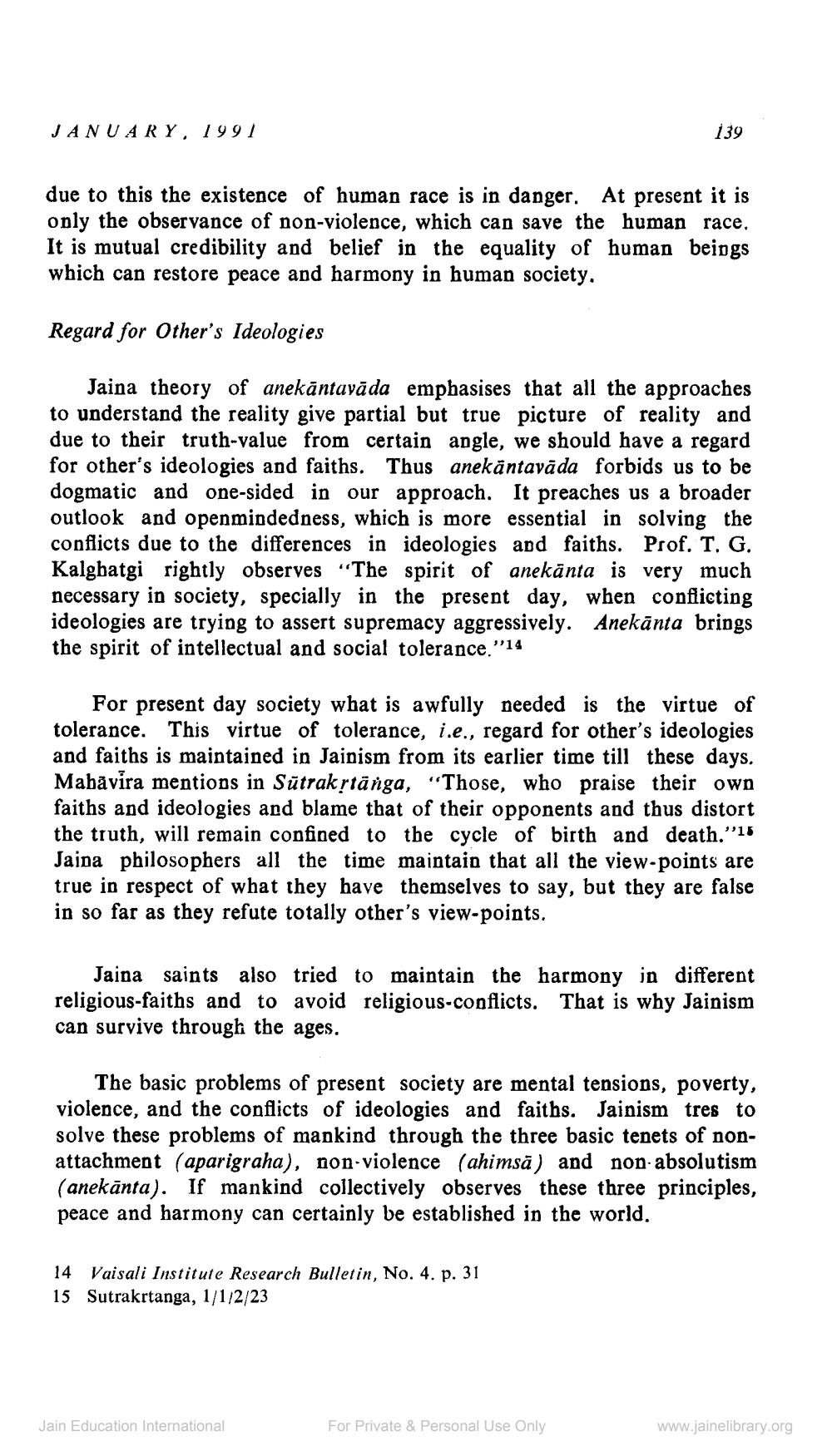________________
JANUARY, 1991
due to this the existence of human race is in danger. At present it is only the observance of non-violence, which can save the human race. It is mutual credibility and belief in the equality of human beings which can restore peace and harmony in human society.
Regard for Other's Ideologies
Jaina theory of anekāntavāda emphasises that all the approaches to understand the reality give partial but true picture of reality and due to their truth-value from certain angle, we should have a regard for other's ideologies and faiths. Thus anekāntavāda forbids us to be dogmatic and one-sided in our approach. It preaches us a broader outlook and openmindedness, which is more essential in solving the conflicts due to the differences in ideologies and faiths. Prof. T. G. Kalghatgi rightly observes "The spirit of anekanta is very much necessary in society, specially in the present day, when conflicting ideologies are trying to assert supremacy aggressively. Anekānta brings the spirit of intellectual and social tolerance."14
For present day society what is awfully needed is the virtue of tolerance. This virtue of tolerance, i.e., regard for other's ideologies and faiths is maintained in Jainism from its earlier time till these days. Mahavira mentions in Sutrakṛtänga, "Those, who praise their own faiths and ideologies and blame that of their opponents and thus distort the truth, will remain confined to the cycle of birth and death."'1 Jaina philosophers all the time maintain that all the view-points are true in respect of what they have themselves to say, but they are false in so far as they refute totally other's view-points.
139
Jaina saints also tried to maintain the harmony in different religious-faiths and to avoid religious-conflicts. That is why Jainism can survive through the ages.
The basic problems of present society are mental tensions, poverty, violence, and the conflicts of ideologies and faiths. Jainism tres to solve these problems of mankind through the three basic tenets of nonattachment (aparigraha), non-violence (ahimsă) and non absolutism (anekānta). If mankind collectively observes these three principles, peace and harmony can certainly be established in the world.
14 Vaisali Institute Research Bulletin, No. 4. p. 31
15 Sutrakrtanga, 1/1/2/23
Jain Education International
For Private & Personal Use Only
www.jainelibrary.org




